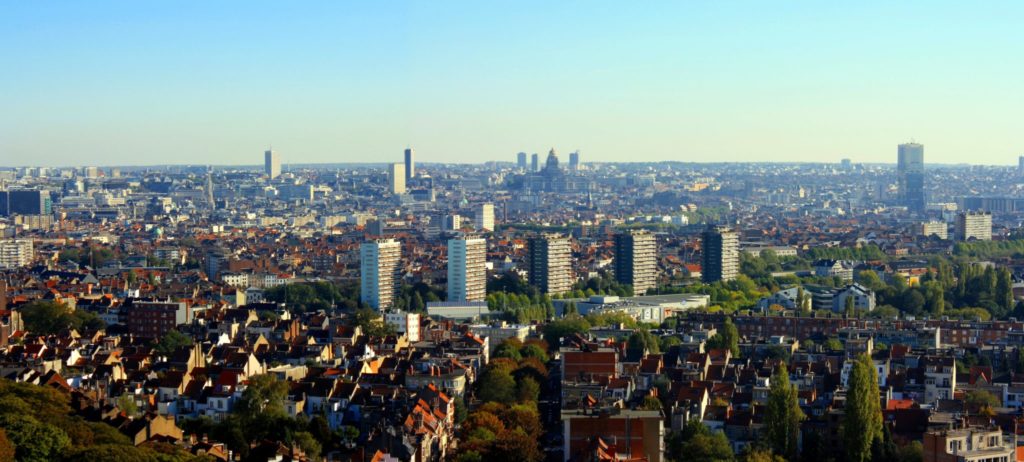A few months ago I was strolling through Chaussée de Haecht, one of the most important commercial streets in Brussels. This vibrant street connects four communes of Brussels. Chaussée de Haecht is in particular known for its many Turkish shops, restaurants and bakeries.
I entered one of these bakeries and ordered some börek, a typical Turkish pasty. While the lady was warming up the börek we started a conversation. This, she explained, is her week job and in the weekend she works in a bar. She is a single mother with a six year-old son, who is currently not attending school.
‘Well, he should be because there is nothing more important than education’, I assured her. She agreed, but her son had to stay all day with her parents because she couldn’t find a school for him. She had contacted many schools but all of them were full. ‘I am lucky I have my parents, as I have friends who stopped working because they had nobody to look after their children during the day’.
It wasn’t the first time I heard this story. At this very moment, there are hundreds of children in Brussels who are unable to go to school simply because there is a shortage of teachers and classrooms to accommodate the numerous pupils.
Violation of right to education
The Belgian constitution, article 24 states that ‘Everyone has the right to education with the respect of fundamental rights and freedoms.’ The Universal Declaration of Human Rights in article 26 states that ‘Everyone has the right to education’. According the European Convention on Human Rights, ‘No person shall be denied the right to education’ (article 2).
The articles are clear, but when you look at the reality they seem like worthless pieces of paper, as meaningless as the statements of our politicians. Yes, we love the idea of spreading human rights to the rest of the world while we assure everybody that everything is perfect in our own countries.
By not guaranteeing the right to education to children born in Brussels, Belgium is violating its own constitution and some of the most important agreements we have on human rights. It is not the first time that we have hundreds of children who are forced to stay at home. Belgium is not the only European country where this is happening. Why is the Belgian government not taking the necessary actions to remedy this contradiction to its constitution? Why is Belgium not being condemned by the international community for this flagrant violation of a basic right?
No perspectives
According to the Organisation for Security and Co-operation in Europe (OSCE), no other country in Europe has fewer immigrants active on the labour market. There are two reasons for this according to the OSCE: racism and discrimination on the one hand, and inequality within education system on the other. According to figures from the University of Antwerp, half of the Turkish and Moroccan migrants are living in poverty. 34% of the population in Brussels lives in poverty. Figures by Policy Research Center show that about 30% of the migrant youth drop out of school without a degree.
These statistics clearly show that we are failing in offering perspectives to the youth and people with migrant background. In fact, the case of education proves that we are even not respecting basic rights by law.
Education - the foundation of a society
Our main focus at this very moment in Brussels, but also in the rest of Europe, should be on how to offer youth and migrants perspectives for the future. I believe the most important topic in society is education, as education is the foundation of a democratic society. To guarantee this right to education, but also offer perspectives, we need first of all enough schools. Brussels has 120,000 citizens who do not have a job. 80,000 of them are low-skilled. What if the government decided to employ part of these unemployed to build schools? We have inspiring examples such as the association Atlier Groot Eiland in Brussels where low-skilled youth are making furniture from waste wood. Environmentally friendly but also socially responsible.
Housing
Furthermore, Brussels has been struggling for decades with a housing problem. Despite the fact that half of the population is eligible for social housing, merely 8% can be accommodated. Worse, existing social housing buildings are deteriorating because no renovations are done. What if the Brussels government would decide to invest in this? What if low-skilled unemployed were enabled for the construction and renovation of social housing?
I have another suggestion. In Brussels there are at least 30,000 empty buildings. On top of that, two million square meters of office space is standing empty. Nevertheless, policymakers decided last year to green-light new office space in Brussels.
There is a law that allows municipalities to reclaim empty buildings, but in reality it is never used. What if municipalities and the Brussels region would work on this by making it possible to claim a certain percentage of empty buildings and renovate them? For the renovation we could enable some of those thousands of unemployed in Brussels, through social economy enterprises or in collaboration with companies through public-private agreements.
Some of these empty buildings can be renovated for various social and cultural purposes, and also be used to help stimulate the local economy. Such communal areas are urgently needed in Brussels.
The lady in the bakery was still living with her parents, as she couldn’t afford living on her own. According to the Belgian constitution (article 23) and other international agreements, every citizen has the right to decent housing.
It is the duty of politicians and society in its whole to guarantee basic rights, such as education and housing. If they do, they will change the life of not only this lady and her little son but with them many others too.

